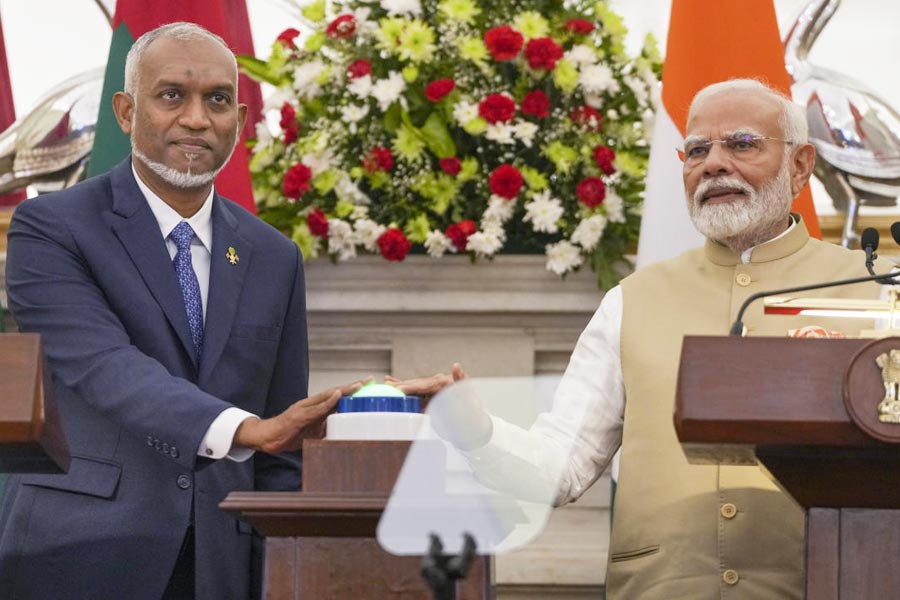A little over a year after Mohamed Muizzu won the Maldivian presidential election, riding on an openly anti-India campaign, the leader of the Indian Ocean archipelago presented a very different approach to ties with New Delhi during his visit this week. He wooed Indian tourists, promised that he would never take steps that could hurt India’s security interests, and oversaw the signing of several agreements with Prime Minister Narendra Modi. These include a maritime security pact and a currency sway arrangement that could help the Maldives avoid debt defaults. Mr Muizzu also invited Mr Modi to visit Malé and the Indian prime minister accepted the invitation. In a media briefing, Vikram Misri, India’s foreign secretary, referred to the long-standing friendship between the nations. For India, these are welcome developments. Mr Muizzu had promised during his campaign to prioritise relations between the Maldives and China and visited Beijing before travelling to New Delhi. Soon after coming to power, he also ordered the expulsion of a small contingent of Indian troops posted in the Maldives. Some of his ministers had made undiplomatic remarks about Mr Modi and India. The outcomes from his visit to New Delhi this week represent a dramatic turnaround.
Yet India must draw the right lessons from this shift. Amid the tensions between New Delhi and Malé over the past year, many influencers aligned with Mr Modi’s government had pushed for an informal economic boycott of the Maldives; the number of Indian tourists visiting the Maldives had plummeted too. As the Maldives struggled to seal deals to defer debt loan repayments, Mr Muizzu began reaching out to India with a changed tone. Against this backdrop, it would be tempting for India to give in to big-power hubris and conclude that smaller neighbours like the Maldives have no option but to eventually fall in line with New Delhi’s interests. That would be a mistake. Mr Muizzu, for instance, has also bolstered relations with China. The party of Sri Lanka’s new president, Anura Kumara Dissanayake, has traditionally had close ties with Beijing. Nepal’s prime minister, K.P. Sharma Oli, has also been an advocate of Kathmandu-Beijing bonhomie. Mr Modi’s government must offer enough incentives to these nations for them to not align themselves against New Delhi while staying firm on Indian interests. Mr Muizzu’s visit has created a new opening for India to do just that. It must now build on that momentum, with the Maldives and beyond.










